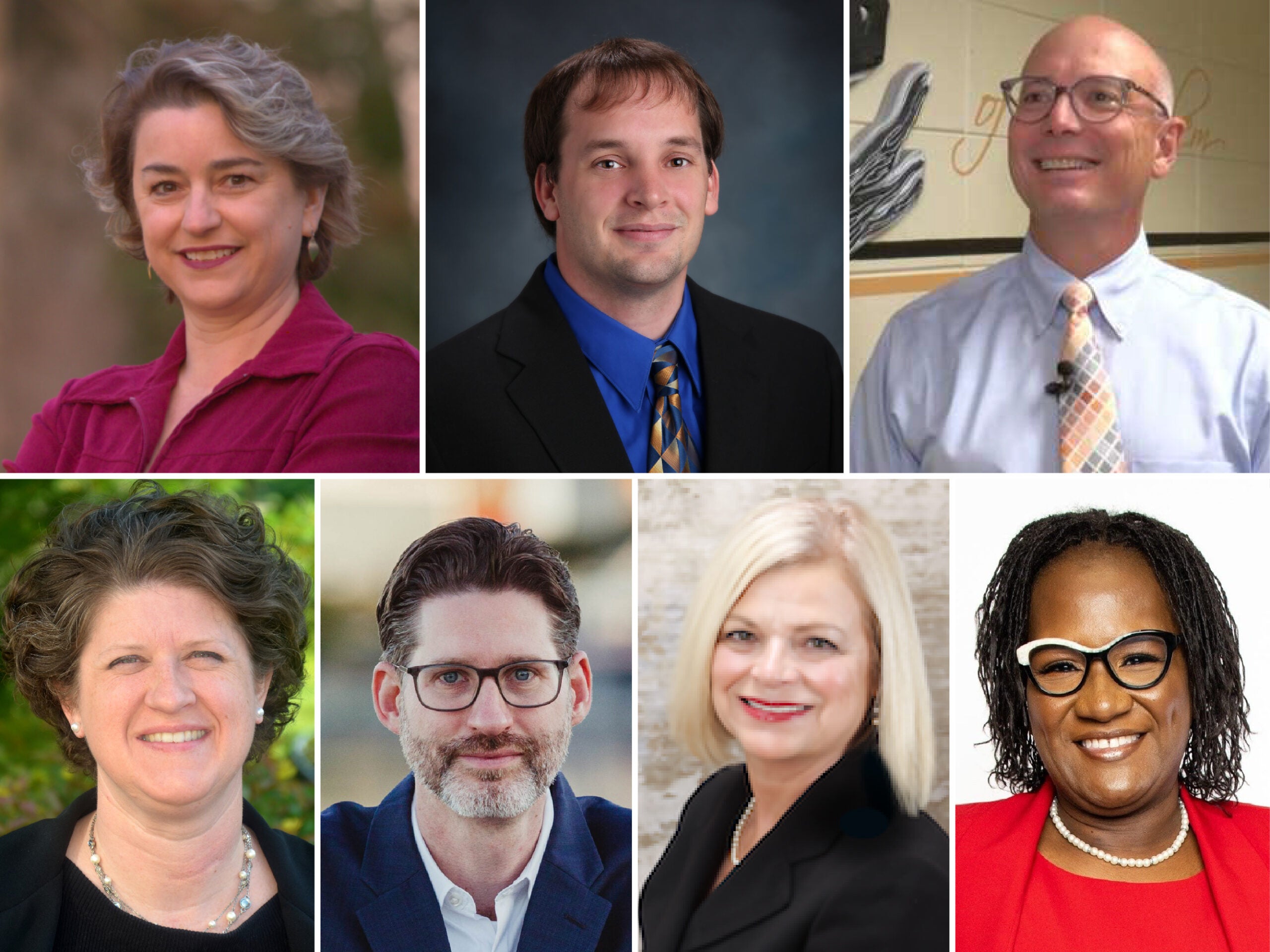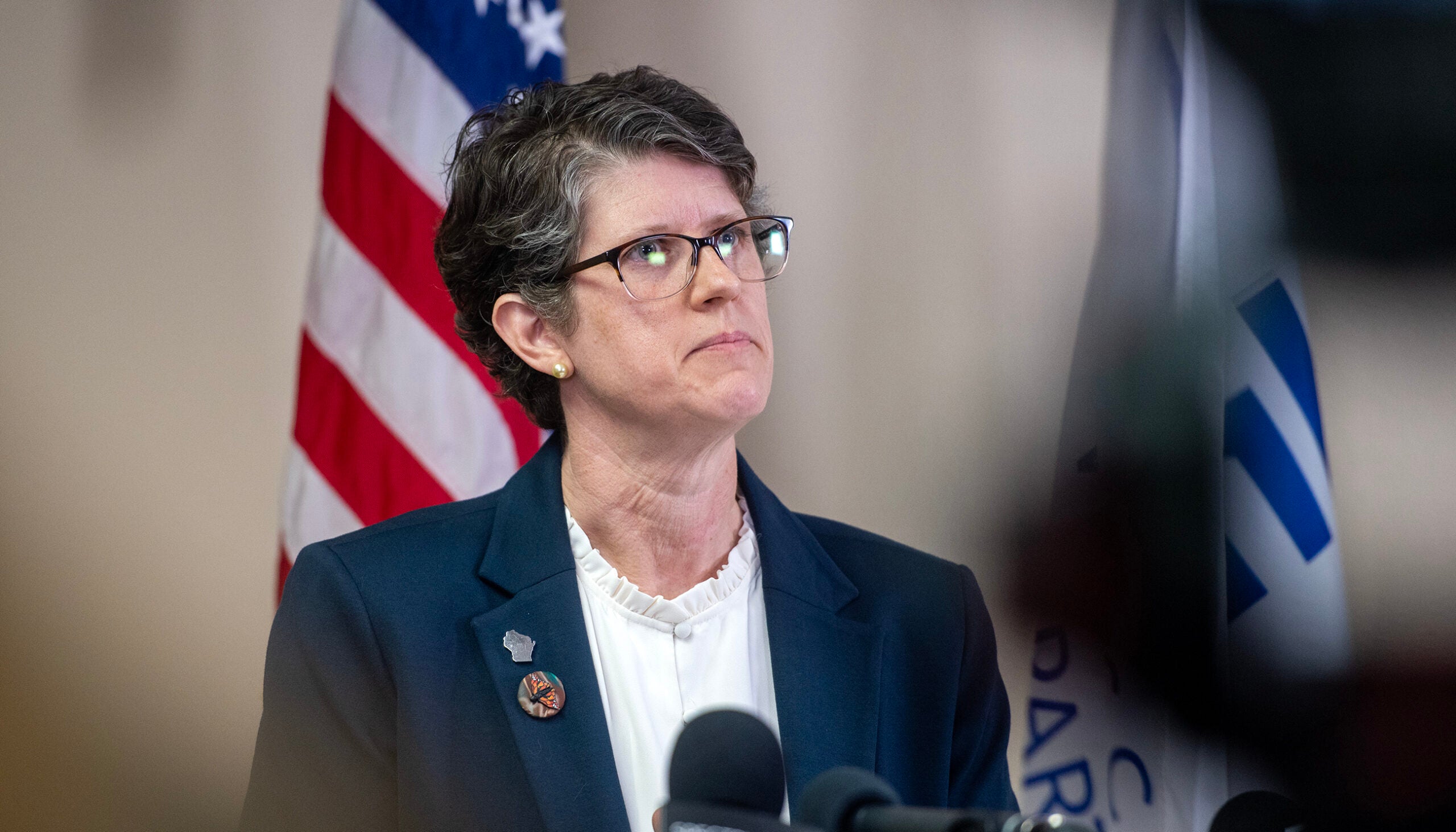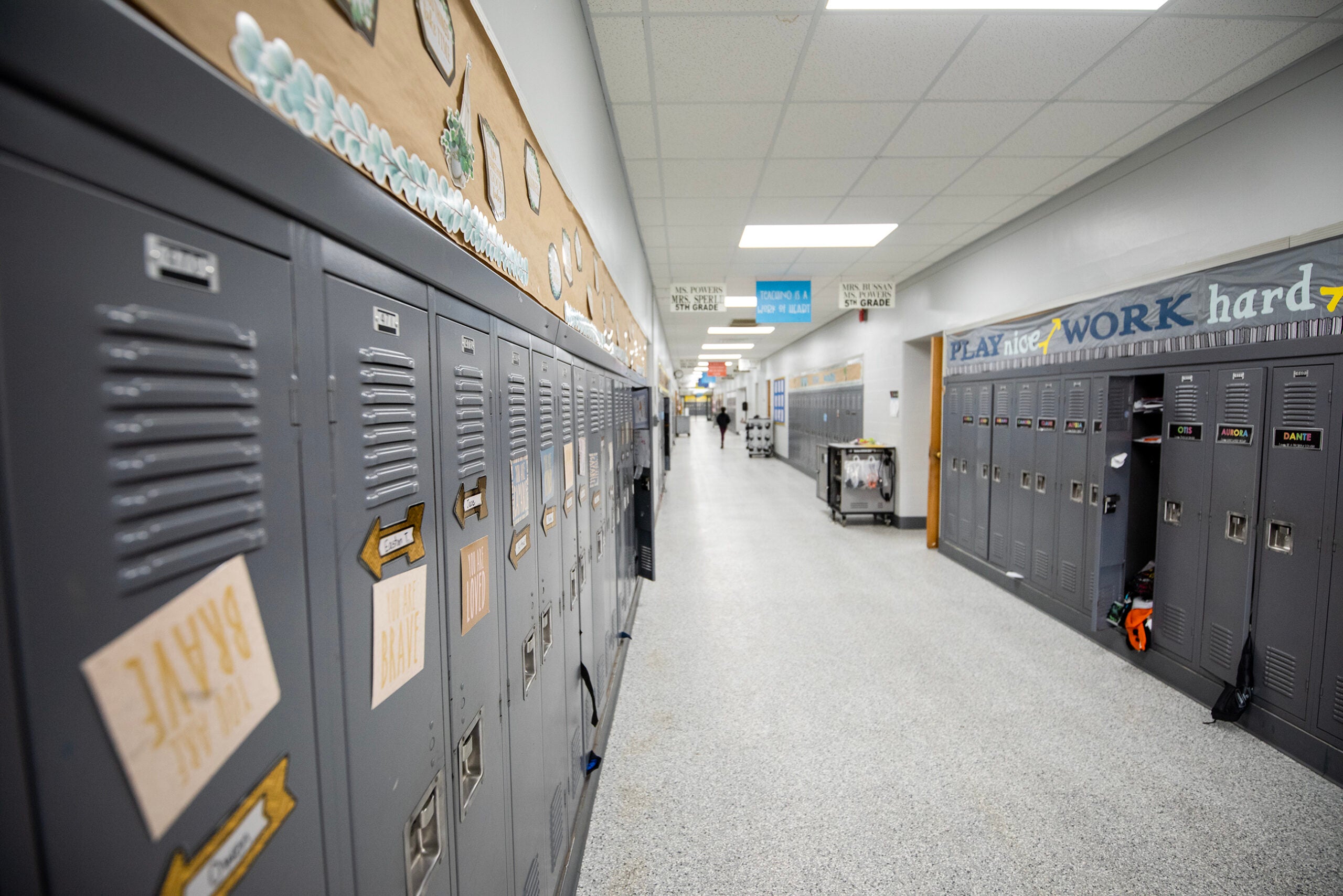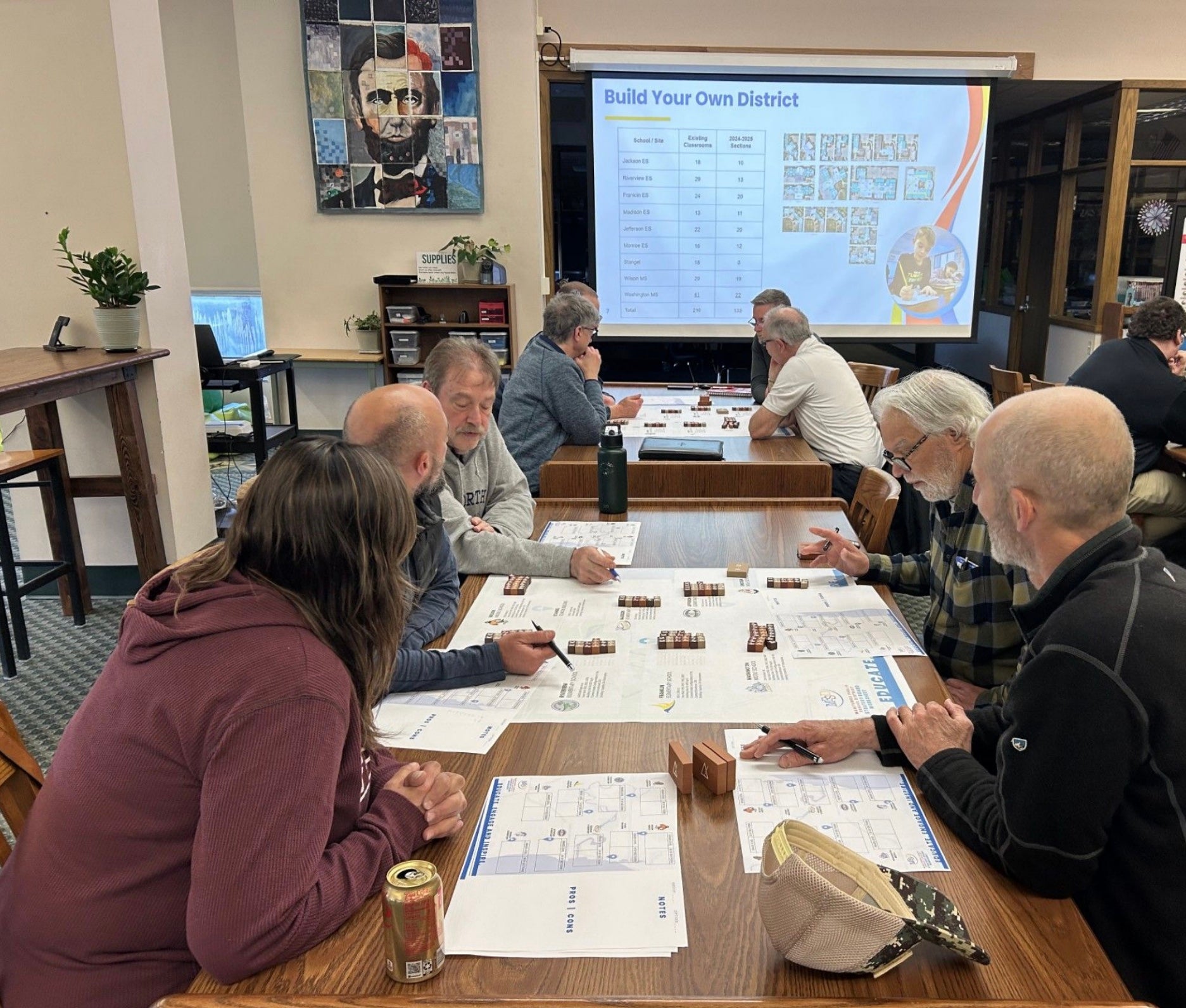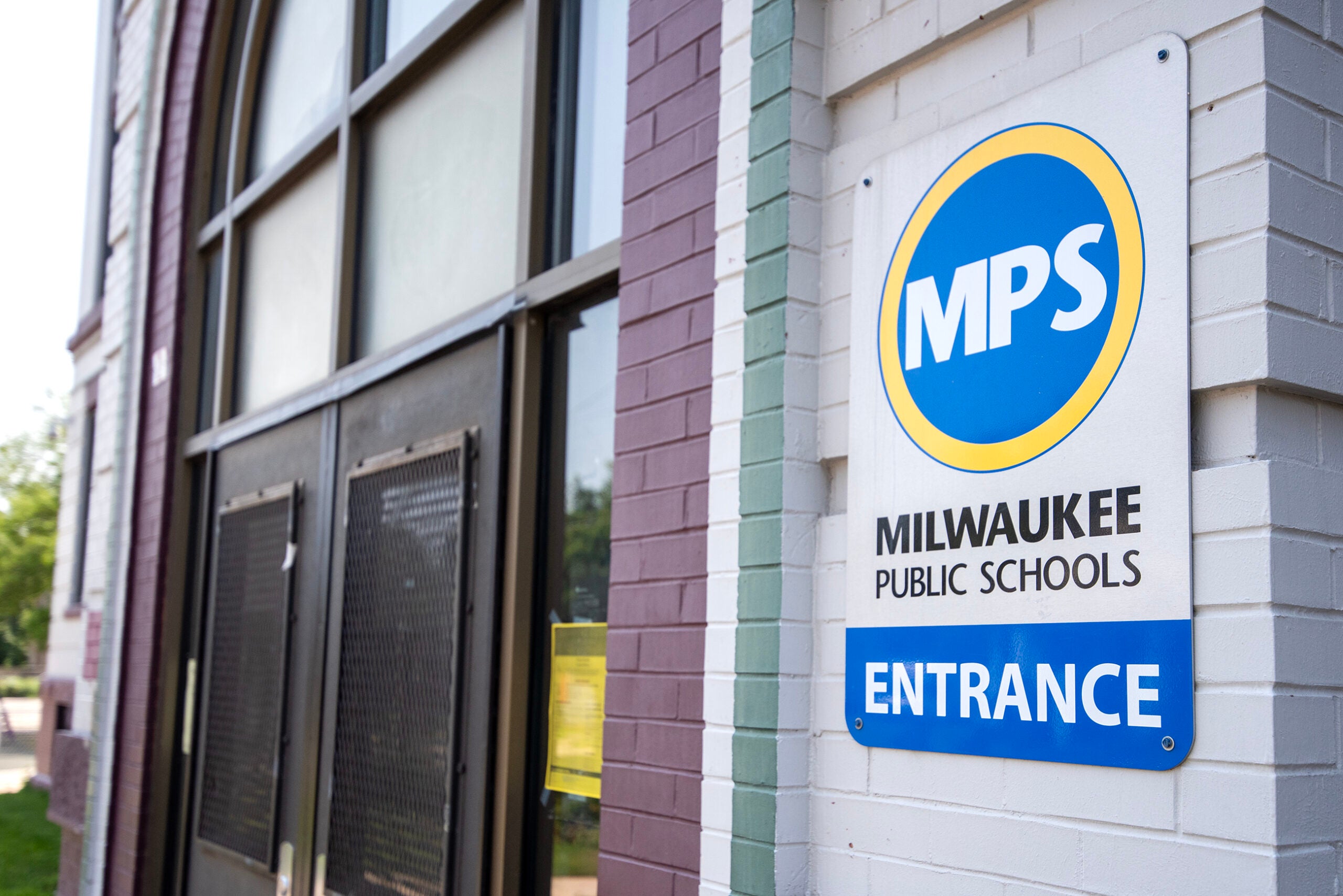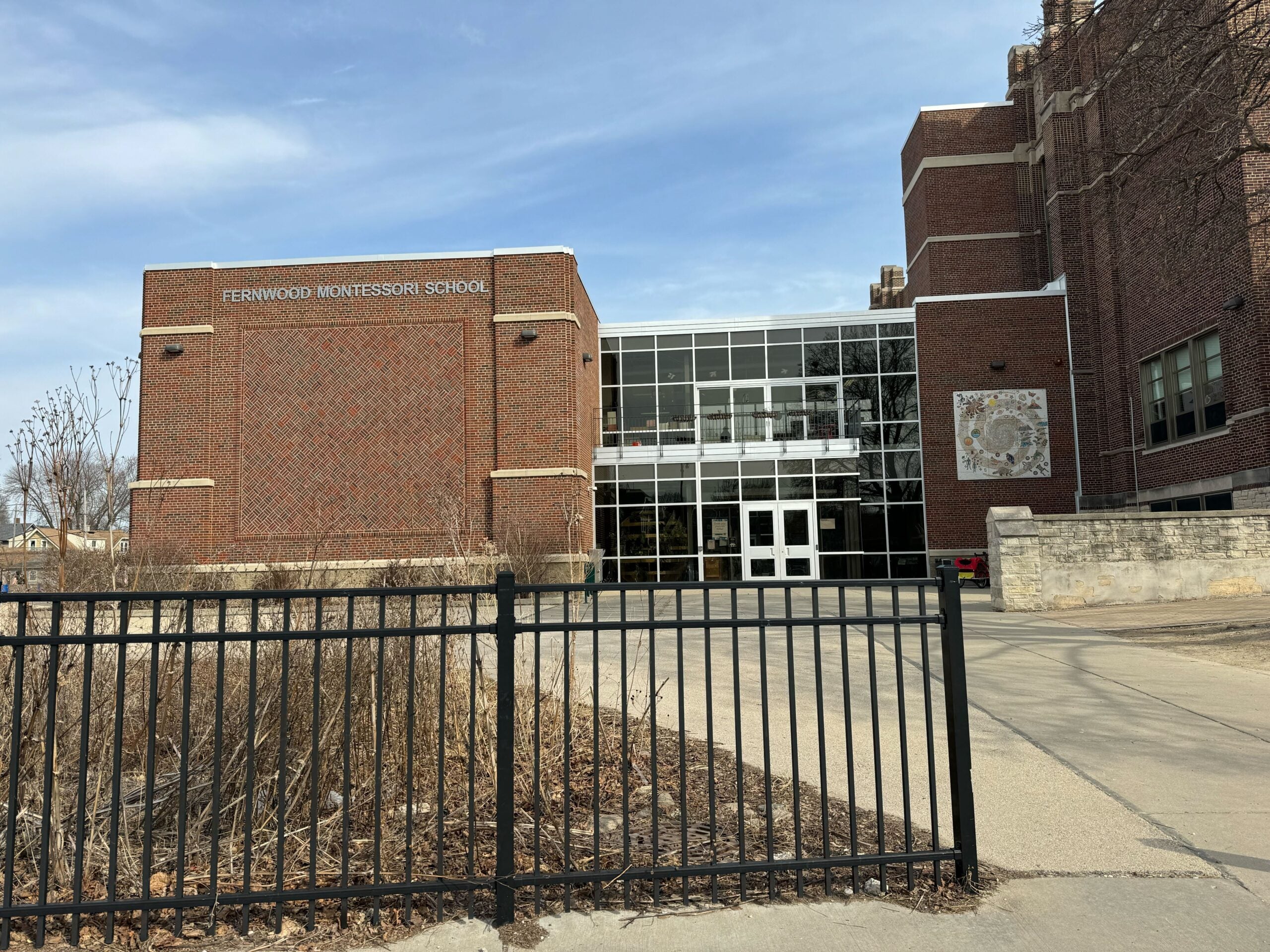On Feb. 16, Wisconsin voters will narrow a field of seven candidates vying to become Wisconsin’s next top education official after state Superintendent Carolyn Stanford Taylor’s term ends in July.
The crop of candidates includes current and former school administrators, a teacher, an assistant state superintendent and a former member of Gov. Tony Evers’ administration. Six of the candidates recently spoke about their campaigns during appearances on WPR’s “The Morning Show.”
Among the issues covered in the interviews, the candidates discussed the state’s response to the coronavirus pandemic, school funding, and student achievement gaps.
News with a little more humanity
WPR’s “Wisconsin Today” newsletter keeps you connected to the state you love without feeling overwhelmed. No paywall. No agenda. No corporate filter.
Joe Fenrick, a Fond du Lac high school science teacher, was the one candidate not interviewed. He declined an invitation, citing scheduling conflicts with his job.
Wisconsin’s election for state superintendent of public instruction is a nonpartisan race. The top two finishers of the primary advance to a runoff on April 6.
Below are excerpts and full recordings of each interview:
Sheila Briggs
Sheila Briggs is an assistant state superintendent who oversees the Division for Academic Excellence at the state Department of Public Instruction. She called equity in public schools “the most important issue we have to be addressing.”
On returning students to classrooms amid the ongoing COVID-19 pandemic, Briggs said teachers should be vaccinated as soon as possible and they need access to protective equipment. She said communities must take steps that prioritize returning students to in-person learning, too.
“We all have to just collectively make sure to continue to do things like wearing our masks so that we can keep the virus under control as much as possible in the community,” she said.
Briggs supports greater funding of special education and English language learners. She called for reviewing how much the state spends on private voucher schools, questioning the results they provide students.
“We really shouldn’t have a system that is designed around the amount of property wealth behind a kid,” she said. “We really have to fund our schools based on what kids need, and we know that some kids cost a little more to educate.”
Listen to Briggs’ full interview.
Troy Gunderson
Troy Gunderson is an adjunct professor of school finances at Viterbo University and a former superintendent of the West Salem School District in southwestern Wisconsin. Gunderson said he spent 35 years in public education and comes from a family of teachers.
Among his top priorities, Gunderson mentioned access to early childhood programs, student mental health services, equity and aiding future generations of teachers. Gunderson called for boosting state aid to schools in an effort to reduce funding disparities. He also backs schools receiving varied funding based on enrollments of certain students, such as students receiving special education, homeless or mental health services.
“We’re just dumping an enormous amount of money into the voucher program for private schools (that) in most cases aren’t near as competent as the public schools are in terms of using that money,” he said. “There’s money there if we can reorganize it.”
Gunderson said schools should rely on the advice of experts in communicable diseases to weigh returning students to in-person instruction. He also spoke about options for schools to help kids catch up who are falling behind because of the pandemic.
Listen to Gunderson’s full interview.
Shandowlyon “Shawn” Hendricks-Williams
Shandowlyon “Shawn” Hendricks-Williams is a former director for the state Department of Public Instruction and a former director for Gov. Tony Evers’ Milwaukee office. At DPI, she oversaw teacher licensing and professional development services.
Hendricks-Williams said she is campaigning to close achievement gaps and pledged to establish a task force to examine school funding reform. She said schools should receive more funding for students in poverty, students with disabilities and English language learners. The state should also consider providing more aid to densely populated urban school districts and sparsely populated rural school districts, she said.
Hendricks-Williams backs offering afterschool and summer programs to help students catch up from the pandemic. On returning to in-person instruction, she said schools should offer in-person, virtual and blended learning options based on each student’s needs.
“We need to have all three forms of instruction available,” she said. “Ultimately, that’s a decision that parents and teachers ought to be involved in making because they are the ones who are closest to our children.”
Listen to Hendricks-Williams’ full interview.
Deborah Kerr
Deborah Kerr, former superintendent of the Brown Deer School District in the southeastern part of the state, said student achievement gaps have been exacerbated by the pandemic and school workers should receive vaccines before other essential workers.
“We need to get back to school by mitigating the risk as much as possible,” she said. “We know this is going to be around for a while, so I think if we start by vaccinating all of our teachers and our staff, we can get our kids back into the buildings a lot faster than we are now.”
Citing past work advocating at the state and federal levels, Kerr said she would work more effectively with elected officials to get “more funding for our teachers for increased salaries.”
She supports boosting state payments for special education students and expanding broadband access as part of an effort to address student achievement gaps.
Listen to Kerr’s full interview.
Steve Krull
Steve Krull is principal of Garland Elementary School in Milwaukee and a former U.S. Air Force instructor. Krull said he learned to love teaching while in the Air Force and was trained in creating systemic change.
“I see us at a crossroads,” he said. “We have a generation who is not doing economically as well as their parents, and I partially believe that’s because of our education system.”
Krull described teacher shortages, rural broadband access and student achievement gaps as some of the state’s top education challenges. He called for establishing a new standard of student care to determine government funding levels for schools.
“We need to look at what are the basic things that when we go to any school within the state, it should have this — whether that’s enrichment programs, certain class size, quality and qualified teachers. Whatever that is, we need to determine that and then fund it,” Krull said.
Listen to Krull’s full interview.
Jill Underly
Jill Underly is superintendent of the Pecatonica Area School District, located about 20 miles southwest of Madison. Underly said she is the only candidate with the experience of leading a school district and raising two middle school-aged children during the pandemic.
“As long as we can keep our kids safe — whether it’s through cleaning our buildings or personal protective equipment — we also have to keep our staff safe and healthy. We can certainly be in person, but we need to keep everybody safe,” she said.
Underly said the state has a teacher shortage and students don’t have enough access to mental health services. She called addressing education disparities her top priority.
“I want to disrupt the inequities that plague our public school systems in Wisconsin,” she said. “I’m running because we need a public school system that works for all kids no matter where they live or who their parents are.”
Listen to Underly’s full interview.
Wisconsin Public Radio, © Copyright 2025, Board of Regents of the University of Wisconsin System and Wisconsin Educational Communications Board.

